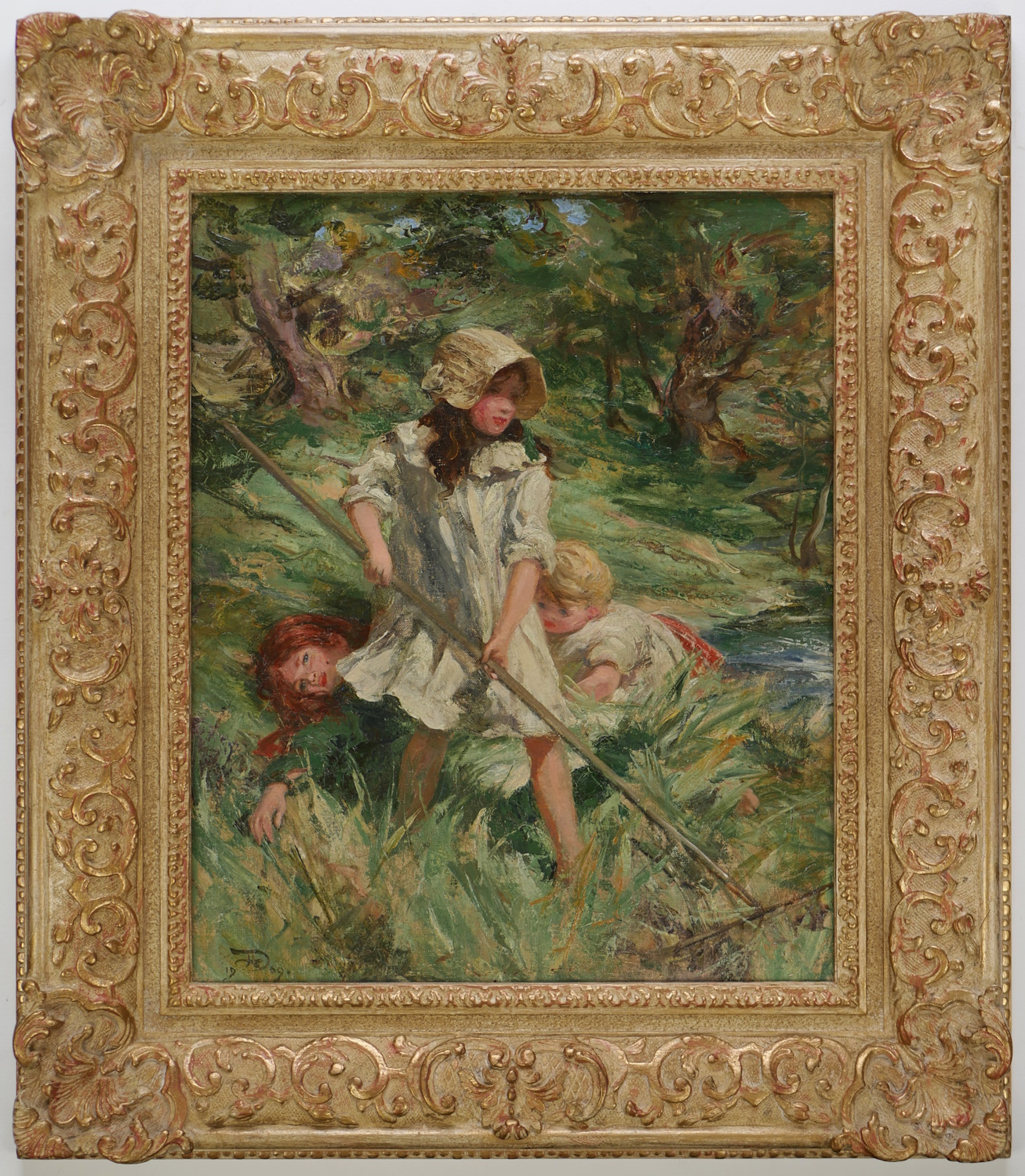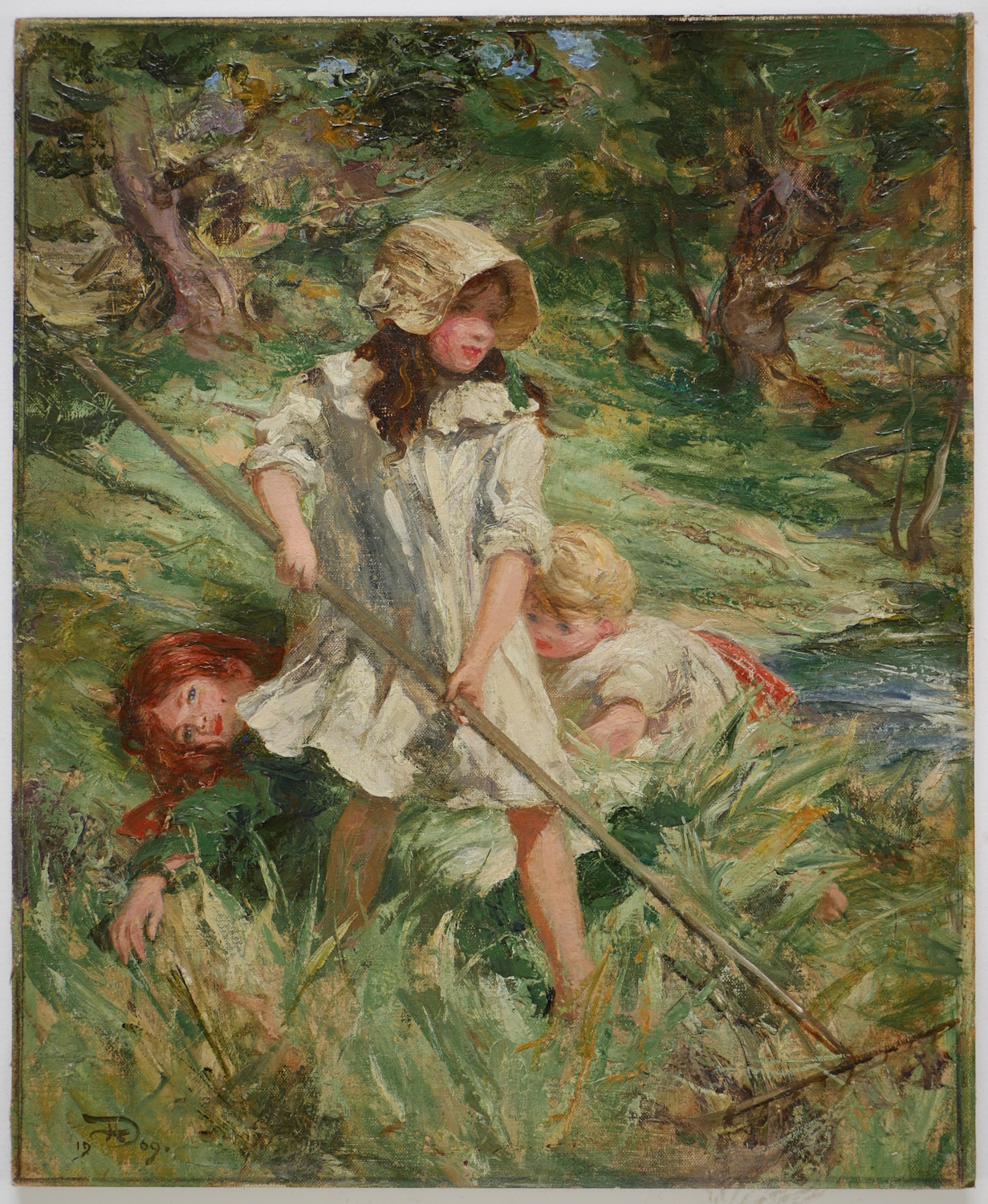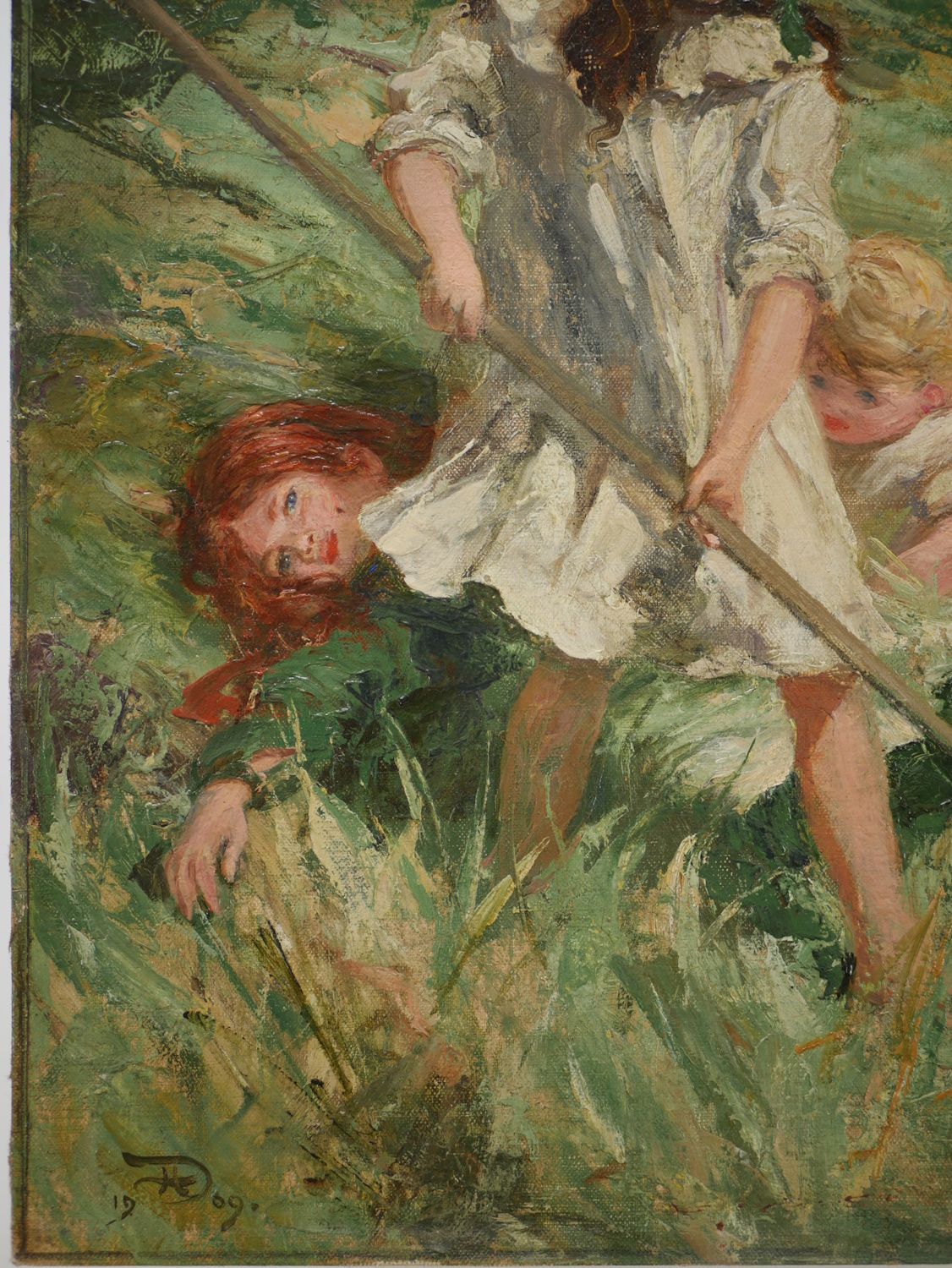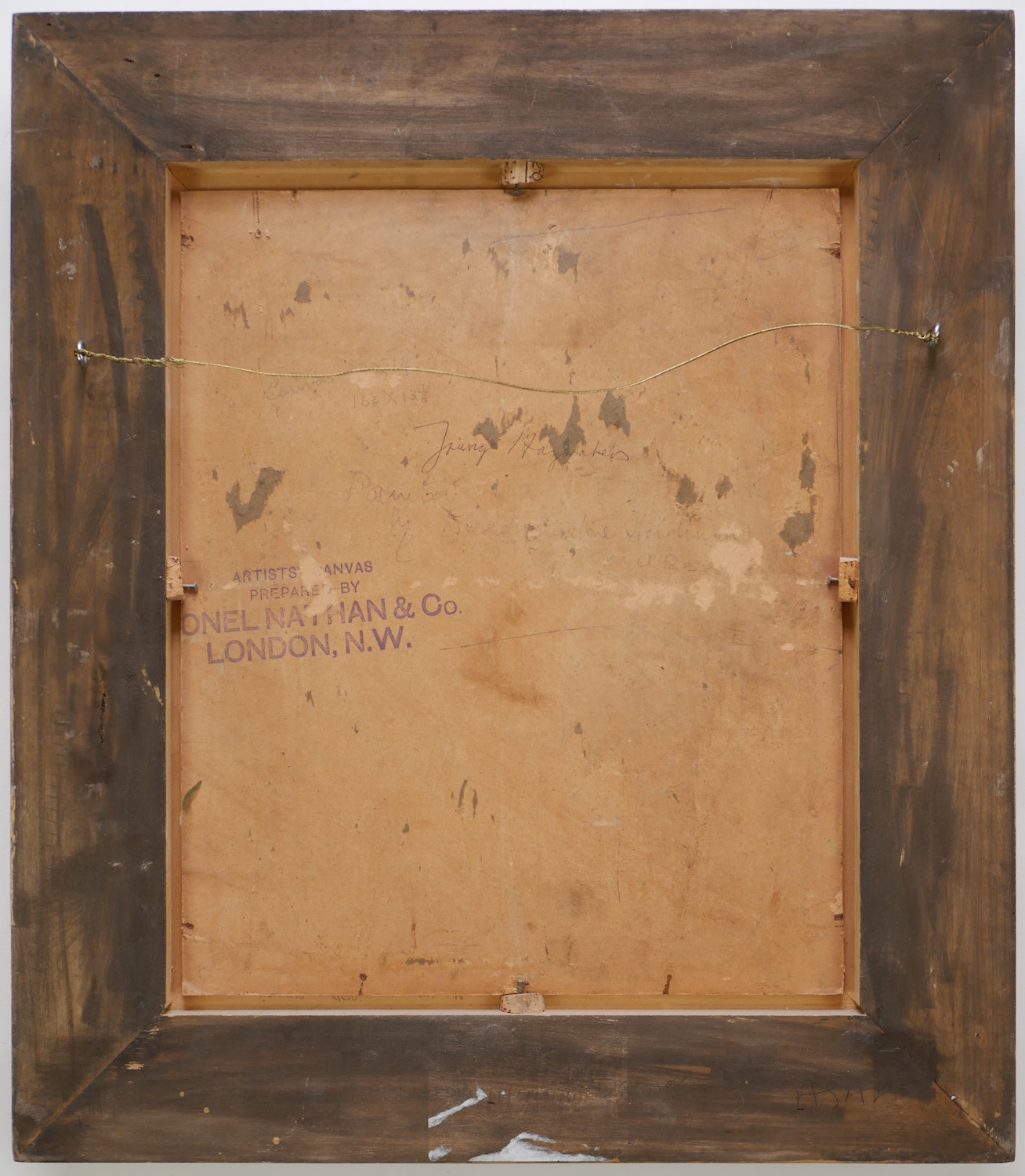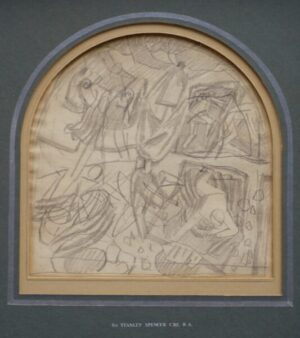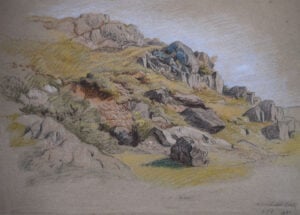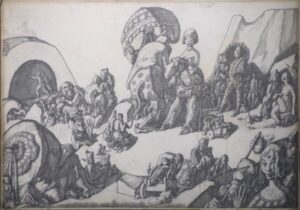Herdman, Robert Duddingstone (1863-1922)
A native of Edinburgh, where he was born in 1863, Robert Duddingstone Herdman may be said to have continued to a second generation the combination of scholarly and artistic qualities which he inherited from his father, Robert Herdman, R.S.A., the distinguished figure and portrait painter of decades of last century. Like him his son had a University training which put him in touch with various spheres of culture, and, though never obtruded, these went to the formation of a personality, both of character and of work, which his more intimate friends, lay and professional, always associated with him.
His earlier professional training was the usual course at the Trustees’ School and the Academy’s Life Class. At the latter, in 1886, he shared the Keith Prize for the best picture by a student in the Annual Exhibition, with Mr. G. Denholm Armour, and again, in the following year, with Mr. W.M.Frazer. Meantime, in 1886, a seated half-length portrait of his father, contributed with two other works to the Exhibition of that year, had made for the young artist a brilliant opening as a portrait painter; and for the earlier half of his career, his work was mainly portraiture.
Following an impulse shared by many of his fellow- craftsmen of that time, Duddingstone Herdman spent the earlier months of 1891 in Paris, where at the Académie Delécluse, under the visiting artists there, Paul Delance and George Callot, and at the studio Calorossi he was closely in touch with the Art student life of that cosmopolitan centre, and the full tide of the various movements of that date. As if to counteract the stream of modernity, he followed this up by a visit to Madrid, spent mostly in the study of the works of Titian and Velasquez. Three years later this was supplemented by a few weeks in Holland, where study in the National Museums was varied by sketching in the region of the Zuider Zee.
Whether or how much it was due to the influence of those experiences it is impossible to say, but during the last twenty years of his practice portraiture gradually gives place to a delightful series of works in which, sometimes the human figure, sometimes landscape, forms the leading motive, and in which the artist gives free rein to his fancy, both in design and colour. Of these one may mention “ Woodland Gleaners,” now in the Dundee Art Gallery, as “ Fagot Gatherers,” “The Home of the Blue Bird,” and “ Children Haymaking.”
Though by disposition averse to publicity, Mr.Herdman took part in the founding of the Society of Scottish Artists, and in 1898 he was Chairman of that body. More recently he has acted on the executive of the Scottish Modern Arts Association, and as one of the Academy’s representatives on the Managing Board of the College of Art.
In 1908 Mr. Herdman was elected Associate of the Academy, and from the date of his connection therewith, his well-weighed and thoughtful counsel, always given with due modesty and reticence, and expressed in words which were the reflex of clear thinking, has been of great assistance to the Academy in some of the intricate problems with which they have been faced during recent years.
For some time before he was laid aside by illness Herdman acted for the Scottish Education Department as Assistant Inspector of Schools under their charge in central Scotland, a position in which his faculty for organisation was speedily felt.
For two years before his death Mr. Herdman had suffered from serious illness, induced, there is no doubt. by the arduous duties he voluntarily undertook during the stress of the war. Again and again, in the course of his trying illness, it seemed as if his vigorous constitution would carry him through; but the malady was too deeply seated, and the end came on 9th June 1922.
